Julia Lippold, Lauriston Girls School Thursday 30 July 2020 Online webinar Download (PDF, 7.4MB) ‘Students working things out for themselves.’ This principle is at the heart of Julia...
Yan Yao Choong, Department of Education and Training
Wednesday 12 August, 4:00-5:00pm
- Click here to access the literacy toolkit:
- Click here to the literacy toolkit map:
The Literacy Teaching Toolkit provides practical advice and high impact teaching practices to improve student outcomes in reading, writing and speaking and listening. In 2019, the Foundation to Level 6 Literacy Teaching Toolkit (F-6 Toolkit) was updated to include specific strategies to differentiate for EAL learners.
This webinar introduced the EAL content incorporated in the F-6 Toolkit and how it may be used to support EAL learners. The session was aimed at primary school teachers.
Yan Yao Choong is a Senior Project Officer at the Department of Education and Training (the Department) with ten years of TESOL teaching experience. She has taught English in Korea and tutored EAL students at VCE level. She has worked in Western English Language School and Blackburn English Language School teaching primary-aged migrant and refugee students. Yan Yao was a Primary Curriculum Coordinator at Blackburn English Language School before joining the Department in 2018. She now works to support teachers of EAL learners in conjunction with other areas in the Department.
In this workshop, Dr Sue Ollerhead discussed the important role that students’ home languages play in their classroom learning. She explored the rationale for using translanguaging as a pedagogical approach...
This session was a practical workshop to assist teachers to modify programs and scaffold learning to assist EAL students to access the Victorian Curriculum across all subject areas. Participants learnt about engaging EAL learners, scaffolding essential vocabulary and making appropriate modifications to learning and assessment tasks.
The session began with a short presentation from Ruth Hibburt. The presentation focused on the ‘nuts and bolts’ of differentiation. The powerpoint presentation is available above. A recording of the presentation will be available shortly.
This presentation was followed by expert teachers from GELC working with participants in small groups to guide them through making appropriate adjustments to a work sample for their EAL learners. Participants were asked to send in a work sample such as lesson plan, unit planner, assessment task or worksheet they are currently using or are planning to use in Term 3 so that GELC staff could formulate recommendations tailored specifically to participants’ needs. This part of the session was not recorded.
This session was aimed at primary and secondary school teachers. Prior to this event, participants were asked to read pages 32-36 of the article ‘Catering for EAL/D Students’ Language Needs in Mainstream Classes: Early Childhood Teachers’ Perspectives and Practices in One Australian Setting’ (Toni Dobinson & Sylvia Buchori).
* Recommended reading: Dobinson, T. J., & Buchori, S. (2016). Catering for EAL/D Students’ Language Needs in Mainstream Classes: Early Childhood Teachers’ Perspectives and Practices in One Australian Setting.. Australian Journal of Teacher Education, 41(2).
Ruth Hibburt is a highly accomplished teacher with over 12 years experience teaching in Victorian Secondary Schools 7-12 and English Language Centres P-10. She specialises in teaching the academic language of Mathematics and Science through planning, engagement, curriculum development, assessment and reporting for EAL Maths and Science P-10. Ruth is a positive change maker in education and an expert in building skills and confidence with teachers and students. She has taught over 3000 students from a diverse range of social backgrounds and learning needs. Ruth currently works in Victorian schools as a Network Numeracy Improvement Teacher.
The GELC staff are all qualified specialist EAL teachers with many years experience in delivering English language programs. GELC programs develop the English language knowledge and skills for students to access the Victorian curriculum across a range of subjects areas including maths, science, humanities and ICT. GELC staff also work in a coaching and mentoring capacity with mainstream classroom teachers to scaffold learning appropriately to meet the needs of EAL students.
Here is a presentation by Premila Veerasamy and Hsah Mu Hen Tun (Geelong English Language School) that covers some further content relating to the discussions from this professional learning event:
The ideas compiled here are from teacher comments and discussions during a number of professional learning sessions that VicTESOL has run since the move to online and remote learning began. The teachers who participated were from primary and secondary schools and from the adult education sector.
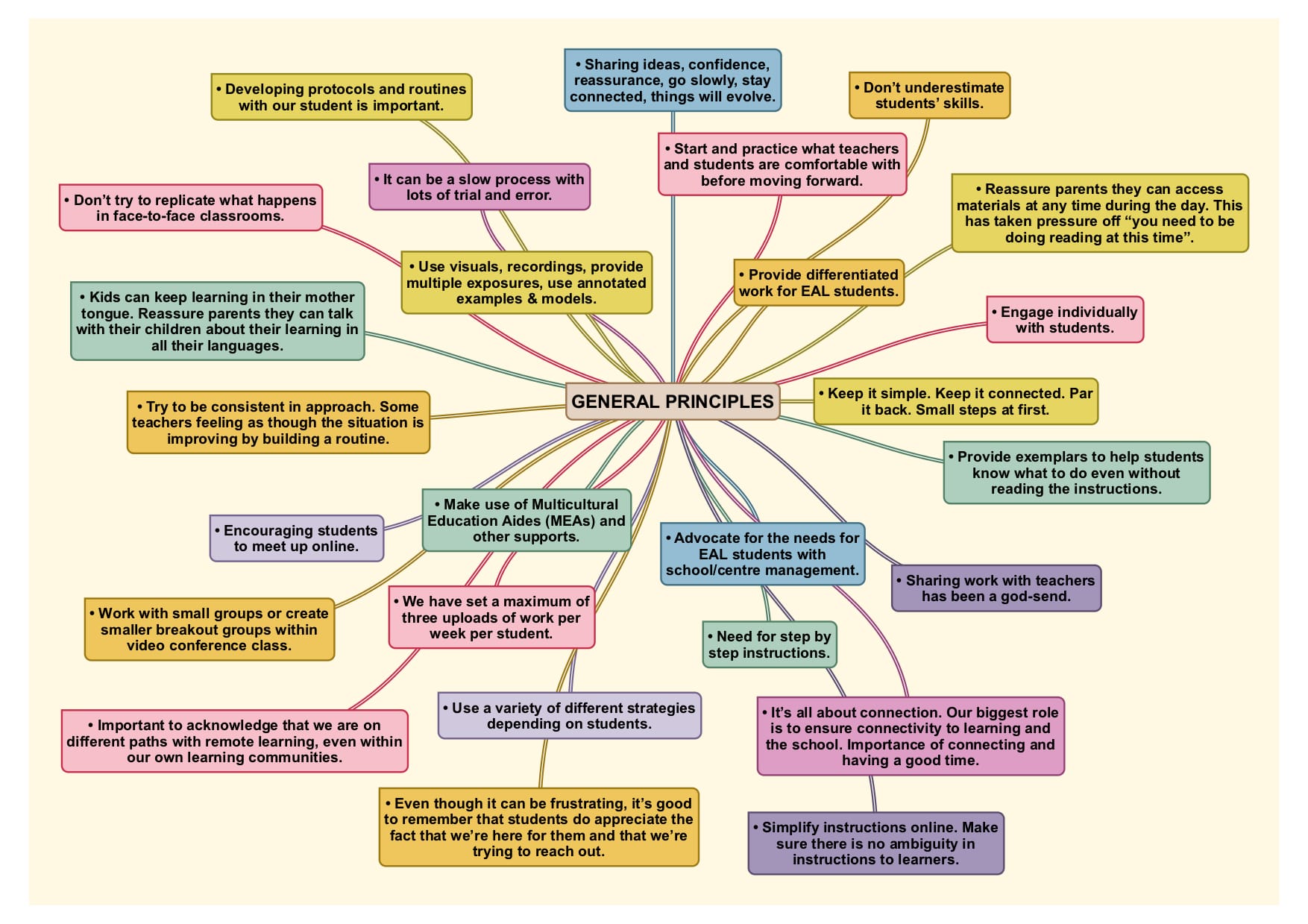
Like the teachers in this session, we hope the ideas and resources in this list help you to also feel more confident about supporting EAL learners remotely. This list includes the positives (what’s working), some challenges, tips, strategies and resources. We hope you find them both useful for, and affirming of your experiences and practices. Thank you to all the participants for sharing their ideas and to the session facilitators for compiling them.
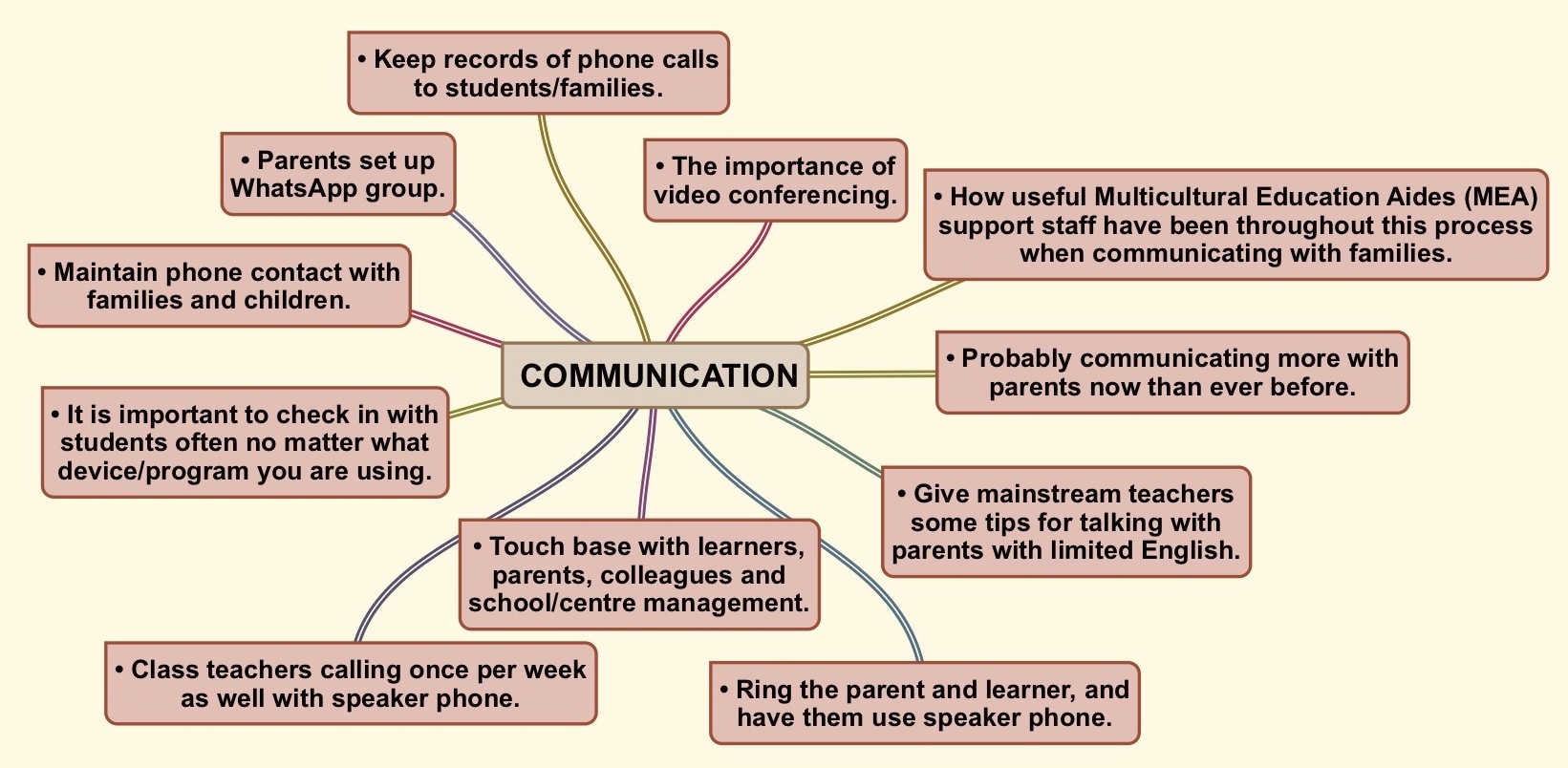
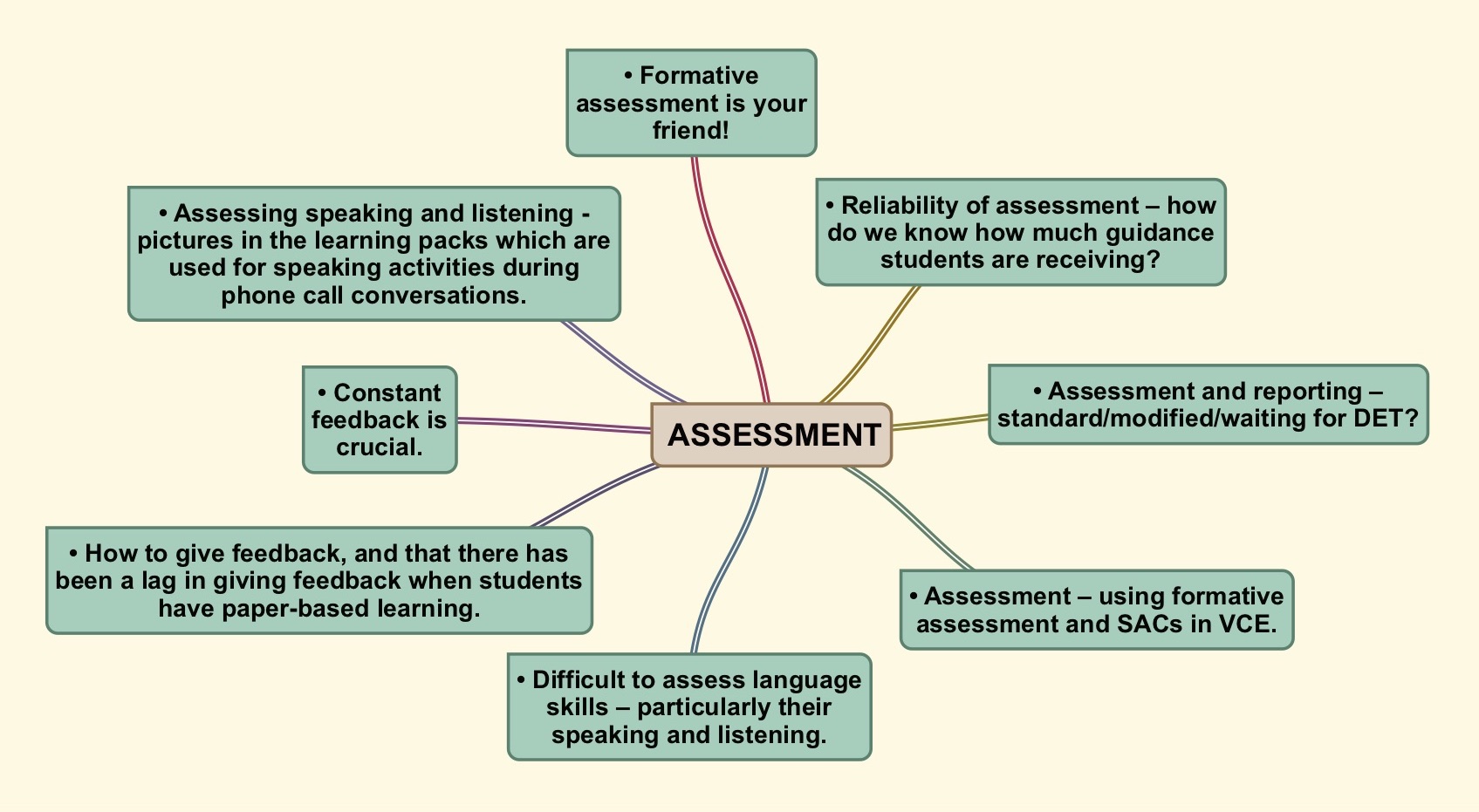
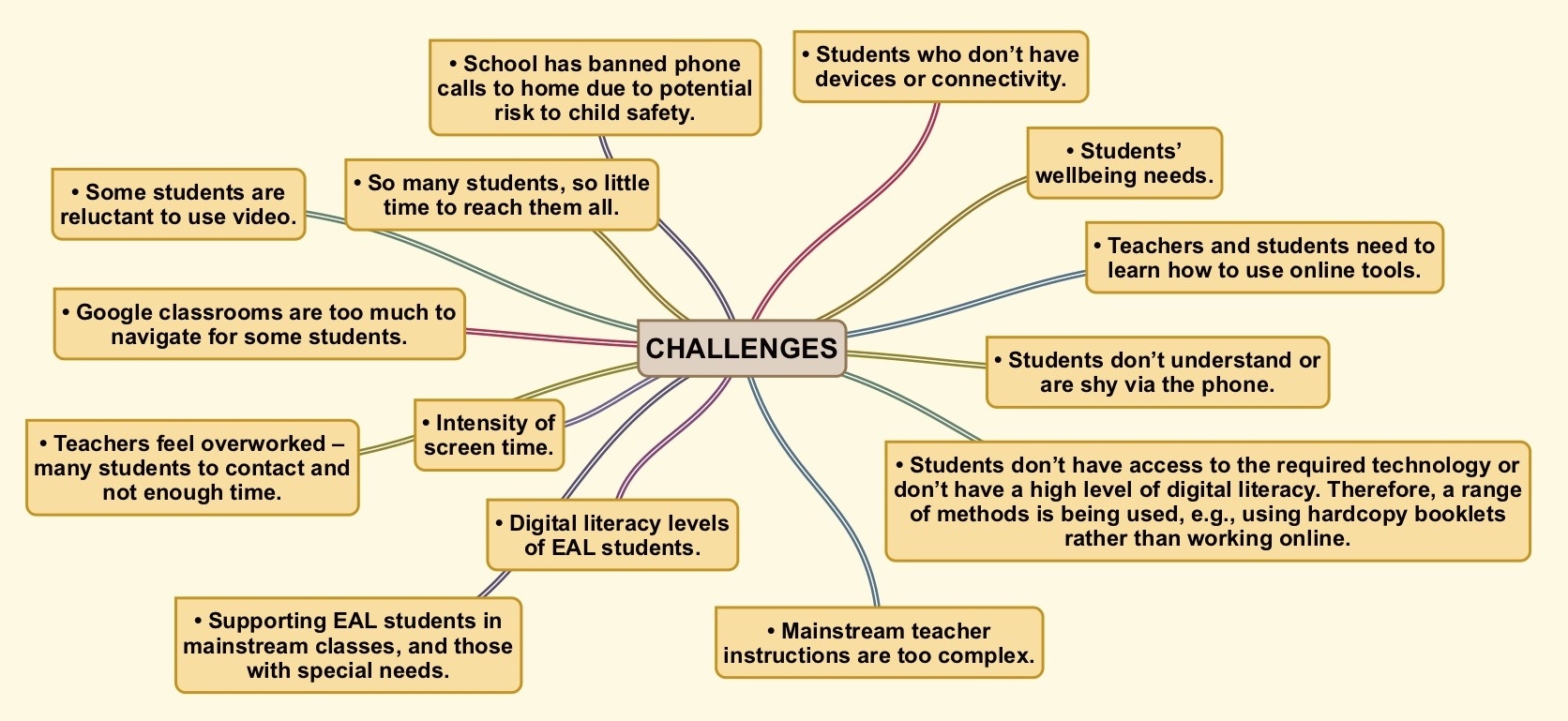

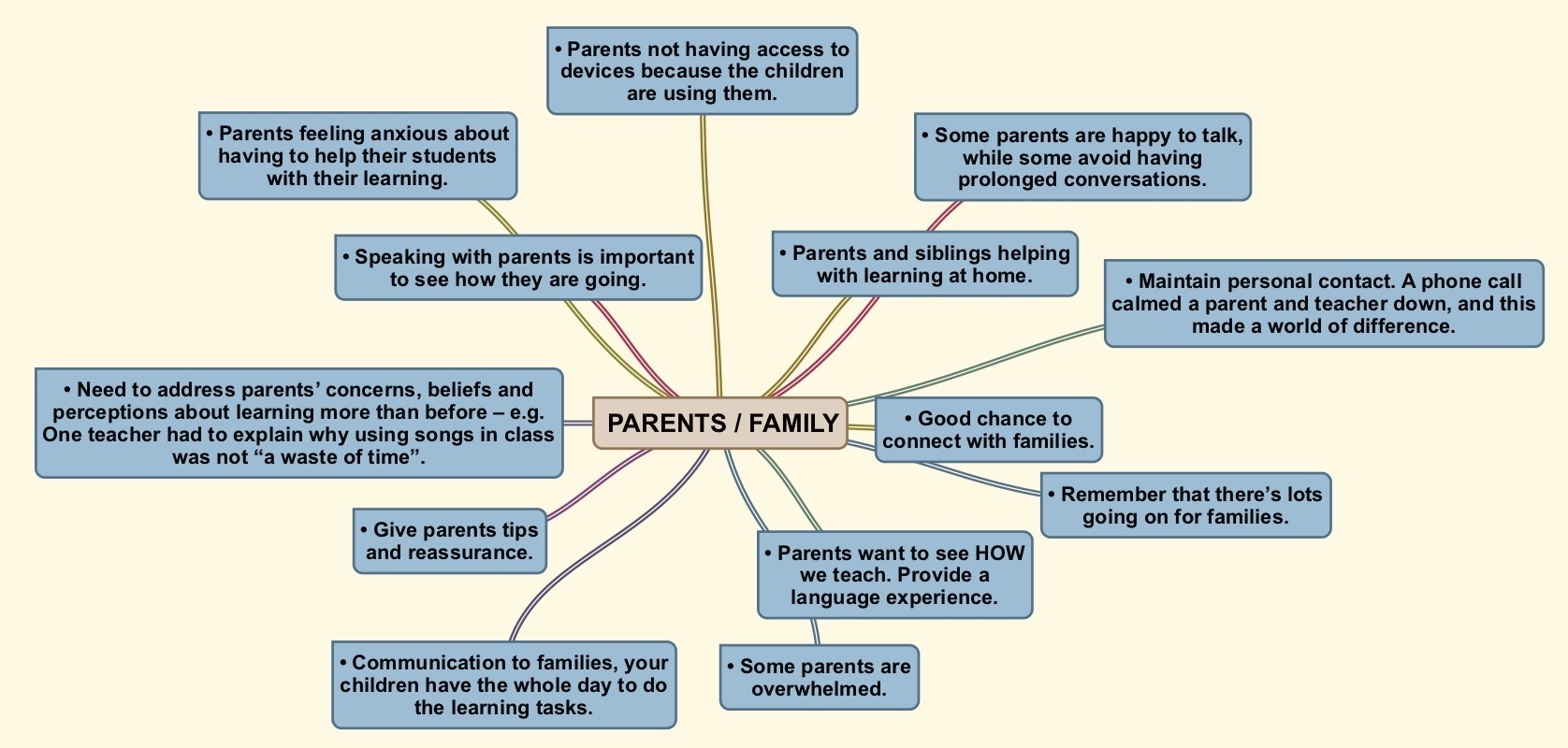

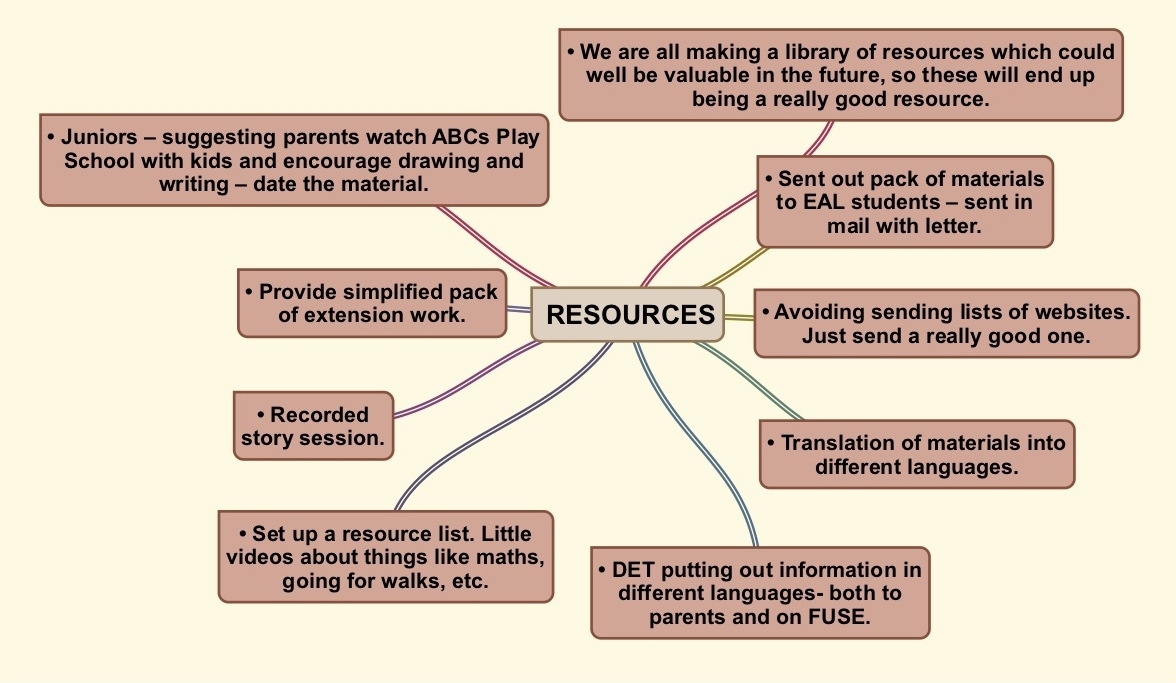
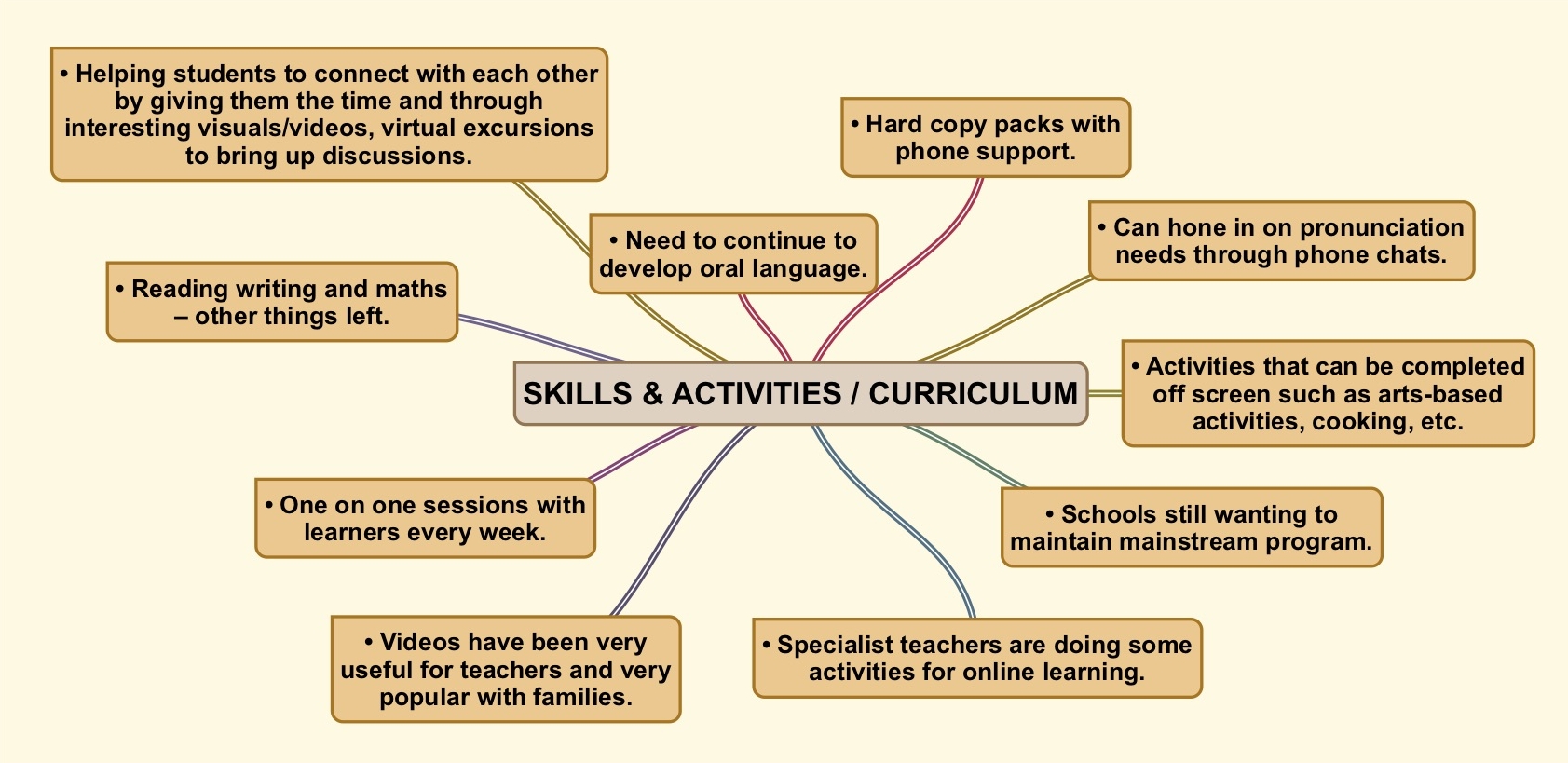
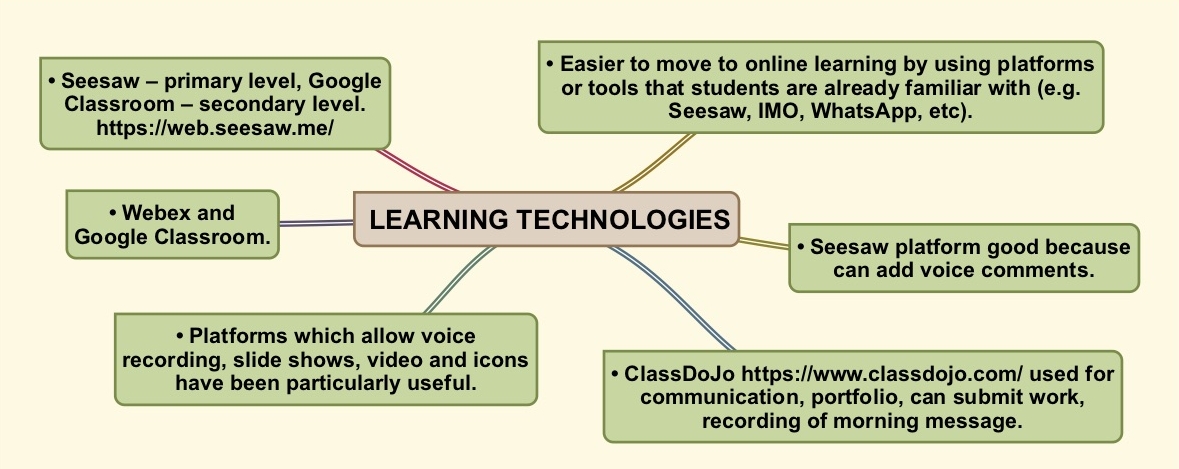

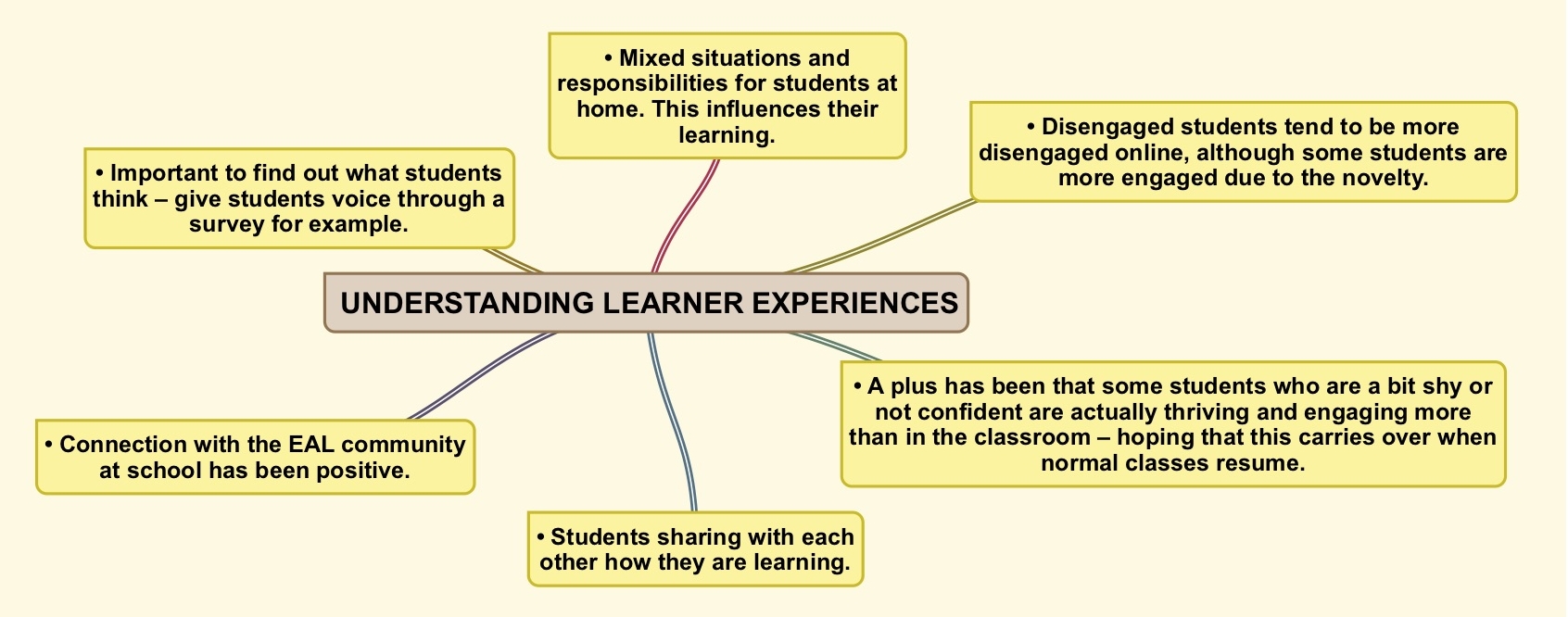
EAL information for schools is outlined on the Department website at:
https://www.education.vic.gov.au/school/teachers/support/diversity/eal/Pages/default.aspx
Click here to access information relating to:
- New EAL curriculum
- Students
- Schools
- Teachers
- Program planning
- Assessment and reporting
- EAL in Victorian government schools
Online discussion forum and mini-presentations
Tuesday 5 May & Thursday 7 May, 4:00-5:45pm
- Clare Blackman & Jessie Sambell (Blackburn English Language School)
- Emily Tucker (Carringbush Adult Education)
- Nathan Chong (Brunswick English Language Centre)
- Jennifer Peck (Languages and Multicultural Education Resource Centre- LMERC)
VicTESOL provided an online space for teachers to come together to discuss their experience of teaching and supporting EAL students remotely during the COVID-19 crisis.
The session began with a number of mini-presentations with presenters sharing what they have implemented so far and their reflections on the experience of remote teaching and learning. This was followed by small group discussions between participants in which there was an opportunity for participants to share their experience and also hear what other teachers are implementing, sharing tips and advice for future learning. Librarian Jennifer Peck from the Languages and Multicultural Education Resource Centre (LMERC) then presented some of their multilingual and EAL online resources.
Click here to access the information shared by Jennifer Peck from the Languages and Multicultural Education Resource Centre (LMERC).
Click here to view the ideas and the resource list compiled from teacher comments and discussions during these professional learning sessions.
Click here to join the teacher discussion forum on Facebook ‘LBOTE Families and home learning’. Click here to access further information on the VicTESOL website about this discussion group.
Click here to access information relating to the Department resources.
To download an edited PDF of powerpoint:
To download the resource links page:
Victoria Butterfield, Voula MacKenzie, Heena Sharma, Panayiota Kai
The Virtual EAL New Arrivals Program of the Victorian School of Languages (VSL)
Tuesday 28 April, 4-5pm
Online Webinar
Are you faced with the challenge of teaching your EAL students online during the COVID-19 crisis?
This session provided practical strategies for teaching EAL online, followed by a Q and A session with a panel of expert primary and secondary EAL teachers who work with the Virtual EAL New Arrivals Program.
Participants learnt tips and strategies for the effective use of videoconferencing to teach EAL learners. Examples were shown of how engaging lessons can be conducted online for F-10 EAL learners at all levels.
This professional learning session focused on working with EAL students who have access to videoconferencing software at home.
About the Virtual EAL New Arrivals Program [VNAP]
The Virtual EAL New Arrivals Program supports new arrival EAL students using video conferencing sessions delivered through a distance education model at the Victorian School of Languages (VSL). The Virtual EAL New Arrivals Program (VNAP) is specifically for newly-arrived EAL learners in remote country schools who cannot access an English Language School or English Language Centre.
Victoria Butterfield is co-coordinator and a teacher in the Virtual EAL New Arrivals Program (VNAP). She is a highly accomplished EAL teacher who has taught in English Language Schools and Centres in Victoria for the past twelve years. Since 2017, Victoria has taught in the Virtual EAL New Arrivals Program to support newly-arrived EAL learners and teachers in regional Victoria.
Voula MacKenzie is an experienced EAL, Information Technology and Humanities teacher, who has taught in Victorian secondary schools, English Language centres and most recently at the Virtual EAL New Arrivals Program (Distance Education) hosted at the Victorian School of languages campus in Thornbury. Since 2014, Voula has led the development of the Virtual EAL program, which began as a pilot project, and is now an established program with 65 students throughout rural Victoria. Voula co-coordinates the program.
Heena Sharma is a generalist teacher specialising in EAL. She has worked in government Primary schools for over 15 years and in collaboration with Panayiota Kai teaching EAL. Heena Sharma joined the Virtual EAL New Arrivals Program team in 2017.
Panayiota Kai is a generalist teacher specialising in Languages and EAL. She has taught in government Primary and Secondary schools for over 20 years. Panayiota has worked as an EAL Coach, trained EAL Leaders and offered PD on EAL issues. Panayiota has been part of the Virtual EAL New Arrivals Program as Curriculum Co-ordinator since 2015.
Wednesday 4 March
Functional Multilingualism/Translanguaging are currently popular terms being researched, discussed and adapted to diverse learning settings. This webinar was a practical response to the current interest in Translanguaging, suggesting ways this might look in EALD classrooms and what teachers might consider when developing Translanguaging activities. With the intention of bringing students’ linguistic and cultural knowledge to the fore through redesigning Australian Curriculum and SACE task, four tasks, along with samples of student work, were presented and discussed.
Janet Armitage currently works for the South Australian Department for Education in the role of EAL/D Hub Coach supporting teachers in professional development that recognises Aboriginal and Torres Strait Islander EALD learners. Janet undertook action research in a large secondary school in South Australia where she was an EALD teacher and EALD & Languages Coordinator. She is also a PhD candidate in Applied Linguistics with the University of South Australia and has been part of a team providing professional development to Languages teachers across the state.
Professor Rhonda Oliver, Curtin University
Monday 28 October, 7-8pm (Australian Eastern Standard Daylight Savings Time)
Australian Aboriginal people interact in diverse ways and this is especially the case for those who grow up and live in rural and remote locations. In such locations Standard Australian English (SAE) is often not spoken as the residents’ first language or dialect, instead they may have either traditional Indigenous language(s) or an English-lexified creole as their first language (L1), or they may have Aboriginal English (AE) as their first dialect. In addition, most will also use AE as the lingua franca to communicate with other Aboriginal people who do not share their home language. For Aboriginal people, particularly those living in the rural and remote communities, the importance of language (i.e., traditional languages, creoles and AE), both for the maintenance of culture and as a marker of Aboriginality, should not be underestimated. For younger people in particular, their Aboriginal languages contribute in significant ways to the formation of their self-identity. At the same time, however, to fully participate in mainstream Australian society Aboriginal people also need to develop an awareness of and have skills in using SAE. This is especially the case for those studying in schools and universities. To address this need, Aboriginal students have been encouraged and, at times, explicitly taught to codeswitch – changing from their home language to SAE within the classroom. This has been implemented on the assumption that written literacy development will emerge from such a foundation. Yet despite this, educational outcomes (e.g., NAPLAN results) show they continue to achieve under the national standard in language and literacy (ACARA, 2012). While formal success in SAE seems elusive, many Aboriginal speakers, including children, demonstrate a complex linguistic repertoire. Rather than simply switching from one language to another they move fluidly between their various linguistic codes and do so as required by the context, audience, and the learning environment. In this presentation I will describe various observational data showing the diverse ways and various modes in which they do this and make suggestions for how pedagogy (including assessment) can move beyond our current monolinguistic hegemony to one that is Informed by a translanguaging perspective (Garcia & Wei, 2014).
Professor Rhonda Oliver is Head of the School of Education at Curtin University, Perth, Australia. She is widely published in the area of second language acquisition with more than 4,000 citations to her publications. Internationally she is best known for her work in relation to child language learners. As well as work within the interactionist paradigm, she has also conducted numerous studies on language learners in schools and universities. She has also undertaken work in the area of Aboriginal education, particularly for those students who have Standard Australia English as their second language or dialect.

